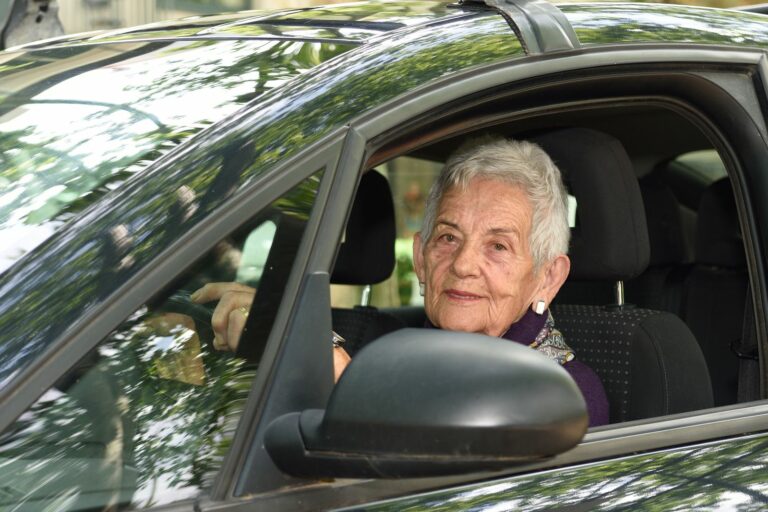
The Difficult Decision to Stop Driving
Getting behind the wheel of a car can feel as natural as sitting at the kitchen table. For long-time drivers, it is hard to image never doing it again. After a lifetime of driving, never sitting behind the wheel again is unfathomable. However, if we live long enough, most of us will probably come to a point when the time comes to hang up the car keys and leave the driving to someone else. In fact, according to the National Institutes of Health, the average American now lives about 10 years beyond their ability to drive safely.
There’s no definitive, clear-cut age when someone should stop driving. People age differently. Many people are able to drive safely well into their “seasoned” years, but others experience changes that can jeopardize their ability to drive safely. And, some of us need to make certain adjustments in order to continue driving safely – such as only driving during daylight hours or only close to home.
Of course, it’s a whole lot easier to tell when someone else should stop driving than it is to realize the time has come in our own lives. The decision to stop driving is never simple or straightforward. It is very common to miss the signs that our driving abilities have diminished, and it is very tempting not to bother looking for the signs.
It is common and perfectly understandable to worry about and dread giving up something that’s so instrumental to our independence. Driving provides freedom. It keeps us mobile. Many older people don’t have access to other transportation options. Many of us do not live close to public transportation and don’t have family members nearby who can easily take us wherever we need or want to go.
Fortunately, there are services in most areas of the United States to help older people who are no longer able to drive. There are free senior shuttle services, low-cost bus and taxi services, volunteer organizations that provide drivers, as well as other resources. Some grocery markets and pharmacies offer delivery services, which can be very helpful. Your local senior center or public library will be able to help you find resources in your neighborhood.
Statistics from the Centers for Disease Control show that drivers in their later “seasoned” years cause more crash-related deaths than any other age group of drivers except teens. Nobody ever wants to have done something while behind the wheel of a car that results in someone else being injured or worse. That’s why it is crucial that we be vigilant and realistic about our ability to drive as we get older. We must each take responsibility for ourselves and make the difficult decision when it needs to be made.
How do we know when the time has come to hang up the car keys? Well, we have to trust the opinions of our doctors, loved ones, and friends. And we must pay attention to the warning signs, like those listed below, that may indicate it is no longer safe to be behind the wheel.
Signs it May be Time to Hang up the Car Keys …
- Consistently driving at a significantly slower speed than the posted speed limit and/or the general flow of traffic
- Difficulty seeing things clearly while driving, such as road signs, landmarks, lines on the road, pedestrian crossings, animals, people, etc.
- Unable to hear typical sounds of the roadway, including sirens, horns honking, and cars passing
- Discomfort or pain when pressing down on the gas or brake pedal or when lifting foot off the pedals
- Inability to turn your neck and shoulders freely enough to see oncoming traffic at an intersection or while merging on to a roadway
- Forgetting to use the turn signal or forgetting to turn it off
- Misjudging distances between cars or before traffic lights and stop signs
- Running red lights or stop signs because you can’t get your foot on the break in time
- Finding it hard to stay inside car lanes
- Often drifting from lane to lane or straddling the line between two lanes
- Experiencing confusion while driving, especially mixing up the gas and brake pedals
- Increased damage to car, like scrapes and dents
- Becoming lost or disoriented when driving, especially in areas that should be familiar
- Becoming distracted or confused frequently when behind the wheel
- Feeling more and more agitated and/or nervous when driving
- Hitting curbs or parking lot fixtures when trying to park your car
- Bothering other drivers with your driving habits on regular basis, receiving more car horns honked and/or angry gestures directed at you


Age Adds Flavor
We are not old, we are seasoned!
Don’t forget to visit us on FACEBOOK!
